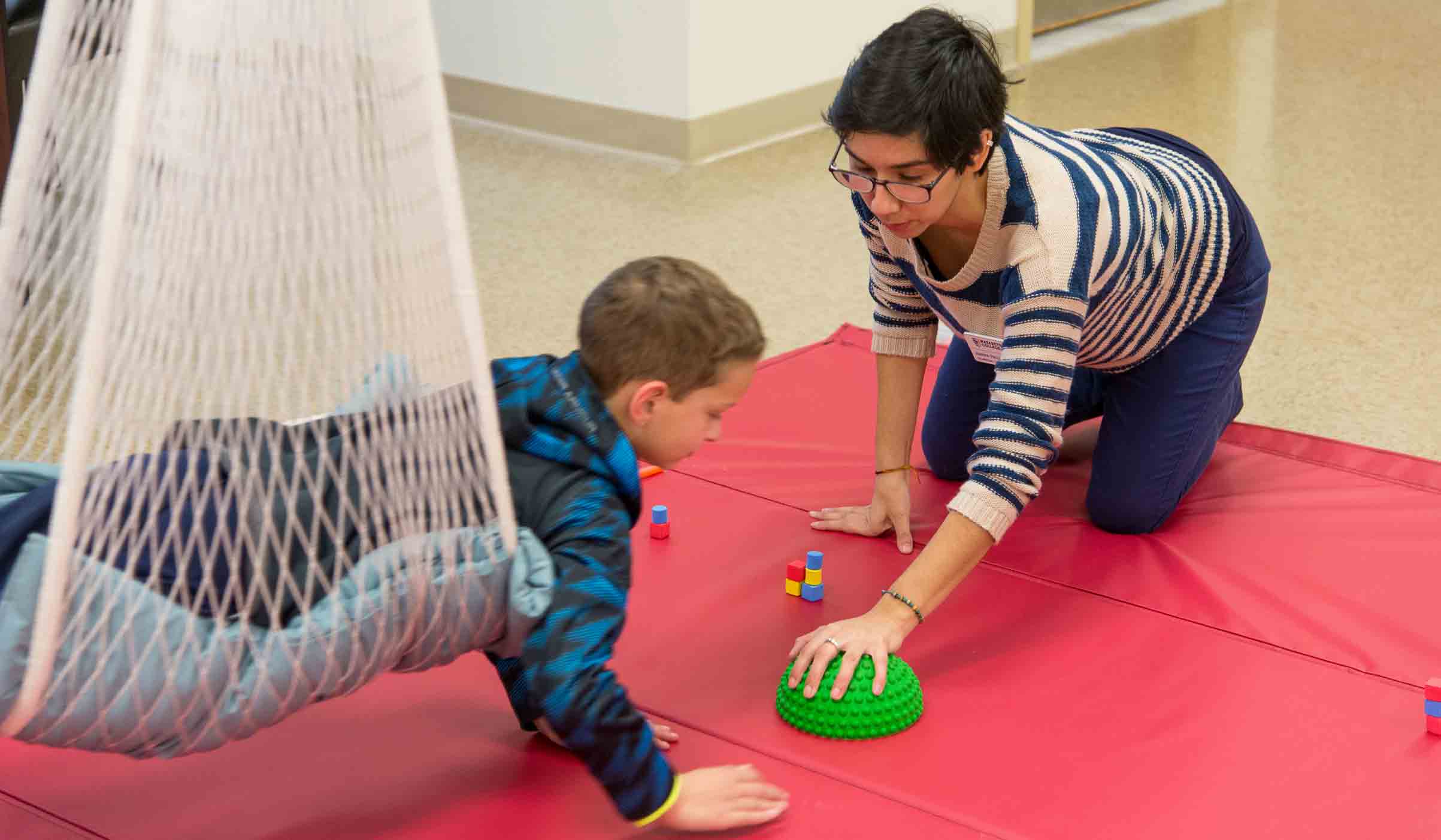Faculty and Staff

Occupational therapy faculty and students work directly with clients in on-campus clinics.
Mission
The mission of the Occupational Therapy Program is consistent with the mission of Nazareth University and the College of Interprofessional Health and Human Services in that it will develop equity-minded, innovative, and empathic changemakers who are adept at critical reasoning and creative problem-solving. As future leaders, our OT graduates will be strong advocates of collaborative teamwork, community service, and evidence-based practice to enhance the occupations of culturally diverse individuals, communities, and global populations.
Philosophy
The philosophy of the Nazareth University Occupational Therapy program is consistent with the American Occupational Therapy Association's philosophical base. It will prepare its students to learn and think critically about the importance of maintaining and improving the ability of individuals, communities, and populations to participate in meaningful activities and tasks in everyday living that are of unique value to the person within his or her environmental context and culture.
Consistent with the belief that individuals learn best through active interactions with their environment, the program will integrate evidence-based inter-professional service learning and fieldwork experiences into the curriculum. It will prepare students to be reflective, ethical, and professional practitioners, as well as beginning researchers and advocates of the profession.
Objectives
The student learning outcomes are consistent with the occupational therapy program’s curriculum and themes that are intended to scaffold the student’s professional growth and knowledge throughout the program. Graduates of Nazareth's Occupational Therapy program will be able to:
- demonstrate knowledge of the structure and function of the human body to include the biological and physical sciences, neurosciences, kinesiology, and biomechanics, and human development throughout the lifespan.
- communicate in a manner that acknowledges and respects the differences and autonomy of all people, demonstrating skills of listening, expression, and adapting to others’ perspectives.
- demonstrate knowledge of the principles of inter-professional and intra-professional team dynamics to perform effectively in different team roles to plan, deliver, and evaluate patient and population-centered care.
- interpret, critique, and apply quantitative and qualitative research to guide evidence based decision making in a professional and clinical setting.
- demonstrate an in-depth understanding of community needs and know how to work with/in the community to create positive change.
- Tiktok
- YouTube
- ZeeMee
© 2026 Nazareth University • Copyright/Privacy • Diversity • Student Right to Know • Employment